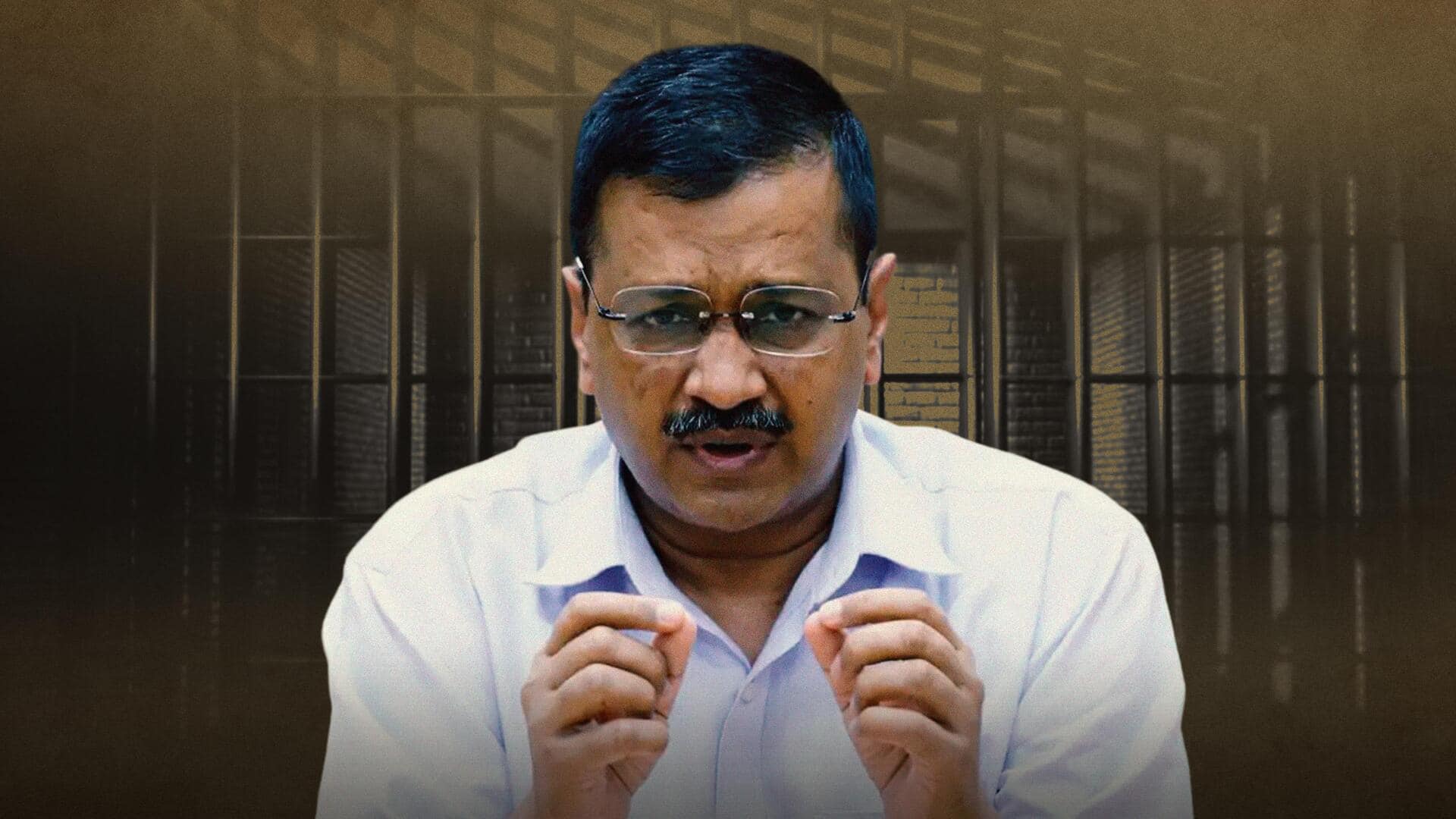
Explained: Can Kejriwal continue as Delhi CM from Tihar Jail
What's the story
Delhi Chief Minister Arvind Kejriwal was on Monday sent to a 15-day judicial remand and transferred to Tihar Jail until April 15. Despite his detention, he continues to serve as the CM of the national capital. There are no legal or constitutional restrictions preventing the Aam Aadmi Party national convener from continuing his duties as chief minister. However, legal experts have raised doubts about the practicality of such an arrangement.
Context
Why does this story matter?
On March 21, Kejriwal was arrested by the Enforcement Directorate in a money laundering case linked to the now-scrapped excise policy. Notably, he is the first sitting chief minister to be arrested by a law enforcement agency. The AAP and the opposition bloc—the Indian National Developmental Inclusive Alliance—have raised protests over the timing of the arrest. They have accused the Bharatiya Janata Party-led Centre of using federal agencies to cripple the opposition ahead of the crucial Lok Sabha elections.
Judicial ruling
High Court ruling on Kejriwal's continuation as CM
Earlier, the Delhi High Court ruled in favor of Kejriwal, stating that there are no legal provisions preventing him from governing while in custody. The court also noted that executive authorities would intervene if there were a constitutional failure. According to PTI, Senior Advocate Vikas Singh said it was "practically impossible" to govern from inside jail. Kejriwal would need court permission for every proposed action and would be unable to convene any cabinet meetings as Delhi CM, he added.
Historical precedent
Legal perspective on incarcerated CMs
Sinha also mentioned the case of Rashtriya Lok Dal chief Lalu Prasad Yadav. Earlier it was thought he could govern Bihar from jail but he later appointed his wife Rabri Devi as his successor. He suggested that the framers of the Constitution likely did not anticipate a situation where a sitting chief minister would be incarcerated. Despite this, Senior Advocate Gopal Sankaranarayanan argued that there are no legal restrictions on an arrested person continuing as chief minister.
As Delhi CM
Kejriwal issued 2 orders in ED custody
To recall, Kejriwal issued two orders in the capacity of Delhi CM while he was in the ED's custody. In his first order from jail, he directed Minister Atishi to address water and sewage related grievances. In his second order, he asked Health Minister Saurabh Bharadwaj to address shortage of medicines and diagnostic tests at Mohalla Clinics and hospitals. Meanwhile, the BJP has continued its demand for Kejriwal's resignation after his arrest.